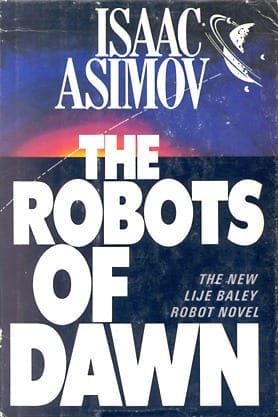THE robots are coming!
Word is they want your job, your life and probably your little dog, too.
Robots have once again gripped the nation’s imagination, stoking fears of displaced jobs and perhaps even a displaced human race. An alarmist segment on “60 Minutes” was only the most vivid of a recent series of pieces in respected magazines and newsoutlets warning about widespread worker displacement. Professors at Cambridge University and a co-founder of Skype are creating a newCenter for the Study of Existential Risk, which would research a “Terminator”-like scenario in which supercomputers rise up and destroy their human overlords, presumably plotting the whole caper in zeros and ones.
In New York alone, there are four plays running this month with themes of cybernetics run amok. One is a revival of “R.U.R.,” a 1920 Czech play that was the granddaddy of the cybernetic revolt genre and that originated the current meaning of the word “robot.”
Such android anxiety has a long history. John Maynard Keynes wrote about “technological unemployment” during the Great Depression. In the Industrial Revolution, disgruntled laborers — including the original Luddites — smashed automated looms and threshing machines that “stole” their jobs. In the 15th century, scribes protested the printing press, with a futile zeal rivaled perhaps only by that of modern journalists.
Even Aristotle foretold that automation would expunge the need for labor, observing that if “the shuttle would weave and the plectrum touch the lyre without a hand to guide them, chief workmen would not want servants, nor masters slaves.”
Throughout the 20th century, science fiction writers created pop culture touchstones about technological tyranny. Among the most resonant is Kurt Vonnegut’s 1952 “Player Piano,” about a dystopia in which mechanization has displaced the lower classes and assigned the world’s wealth to engineers and managers.
You might even carbon-date this literary line to the Golem of Prague, a 16th-century Jewish legend about a clay automaton that ultimately destroyed those it was designed to protect. That story, too, recently enjoyed a revival on the New York rialto.
There is something almost Freudian in these robot takeover terrors, which foretell that the technology we fathered will rise up against us, rendering us obsolete or even extinct.
It’s not exactly clear, though, what triggers these fears, which seem to come in both good economic times and bad. It might be actual accelerations in technical change. But Andreas Bauer, an official with the International Federation of Robotics and a German robotics company executive, says that such fears are unheard-of in the equally mechanized economies of contemporary Japan and Europe.
In Japan, he says, people love the anthropomorphic robots that give Americans the willies. Factories in Germany have big, splashy media junkets to announce their latest automation investments, moves their North American counterparts dare not publicly divulge.
Labor also has more protections in these other developed countries, making it harder to fire workers when more efficient manufacturing processes are developed; in fact, labor contracts in Japan have traditionally banned laying off workers displaced by automation. In the 1980s, economists credited these contract provisions with helping make Japanese manufacturing so productive, since workers had an incentive to suggest efficiency improvements.
via The New York Times – CATHERINE RAMPELL
The Latest Streaming News: Raging Against the Robots updated minute-by-minute
Bookmark this page and come back often
Latest NEWS
Latest VIDEO









